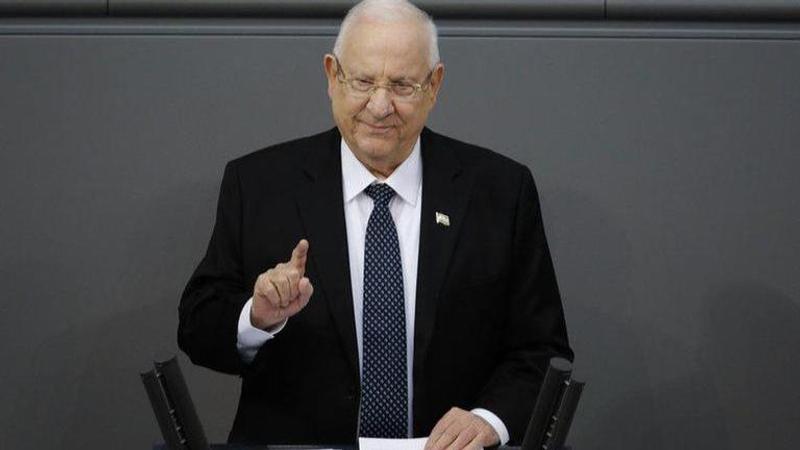Published 17:23 IST, March 11th 2020
Israeli president urges deadlocked blocs to consider unity
Israel's largely ceremonial president on Wednesday urged the country's opposing blocs to find a way to come together in the wake of Israel's third inconclusive election in less than a year.

Advertisement
Israel's largely ceremonial president on Wednesday urged the country's opposing blocs to find a way to come together in the wake of Israel's third inconclusive election in less than a year.
The president is responsible for choosing the prime minister-designate he thinks has the best chance of forming a stable government. Upon officially receiving the results of last week's vote, Reuven Rivlin said he was open to any proposal brought forward but made a point to suggest that his framework from the previous round of failed negotiations was still relevant.
Rivlin, who will begin formal consultations with party leaders next week, took an active role in the previous round of talks and urged Prime Minister Benjamin Netanyahu's Likud party and challenger Benny Gantz's Blue and White party to join together in a unity government.
“I am certainly aware of the criticism of the outline that I presented then, and agree with much of it. But I did not believe there was another way and, even today, the situation has not changed a great deal,” he said in a statement after receiving the results.
After a brutal campaign in which the two camps hammered each other with personal attacks on the other side's leader, a unity government would appear out of the question this time around. The attacks on Gantz have been so severe that his personal security has been increased because of viable death threats.
But both sides appear to be running into major trouble forming a government without the other.
Netanyahu and his religious and nationalist allies only secured 58 of the 120 seats in parliament, leaving them three seats short of being able to build a coalition government. His opponents control a parliamentary majority and are committed to ousting Netanyahu, who heads to trial next week to face corruption charges. However, Netanyahu's foes are deeply divided ideologically, with Avigdor Lieberman's secular, ultranationalist party and the Arab-led Joint List having little else in common.
Gantz met with Lieberman Tuesday in a step toward unifying those anti-Netanyahu forces, although it remains unclear whether they can reach a final agreement, much less a deal with Arab politicians. Lieberman has in the past branded Arab political leaders as terrorist sympathizers.
Netanyahu's Likud party has mounted an aggressive campaign against any potential government that even relies on the outside support of Arab lawmakers, and cracks have started to emerge in the opposing bloc. Two members of Blue and White have stated that they oppose establishing a minority government that depends on Arab votes. In the latest blow, a senior member of the Labor Party-led alliance said she too would not be party to such a move, putting the bloc's majority in jeopardy.
In an effort to temper the heated discourse, Rivlin sought to remind all sides not to marginalize any segment of society.
“In the Jewish democratic equation, every vote counts. In the state of Israel, there are no half-citizens. There are deep disagreements, but no semi-citizens," he said.
Netanyahu's Likud Party has also abstained from a procedural vote meant to approve the official election results, citing their demand for a recount of hundreds of ballots that are in contention. Gantz's Blue and White said the move set a “dangerous precedent” that damaged the legitimacy of the country's elections commission.
Gantz refuses to sit in government with Netanyahu because of the prime minister's pending corruption trial. Gantz was looking to leverage his majority to push for legislation in the incoming parliament that would bar anyone indicted of a crime being able to lead a government — in effect disqualifying Netanyahu from leading the country.
Netanyahu is desperate to remain as prime minister while he prepares to go on trial on March 17. He has been charged with fraud, breach of trust and accepting bribes in connection to a series of scandals that include receiving expensive gifts from wealthy friends and offering to exchange favors with powerful media moguls.
Israel's longest-ruling leader denies any wrongdoing and says the crisis is the result of a media-orchestrated witch hunt to depose him from power.
17:23 IST, March 11th 2020




